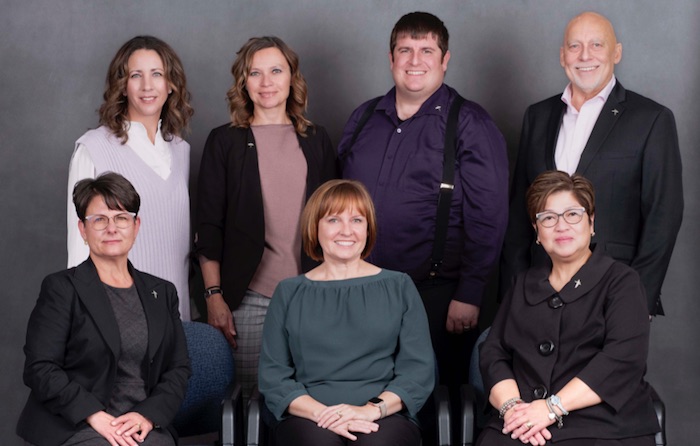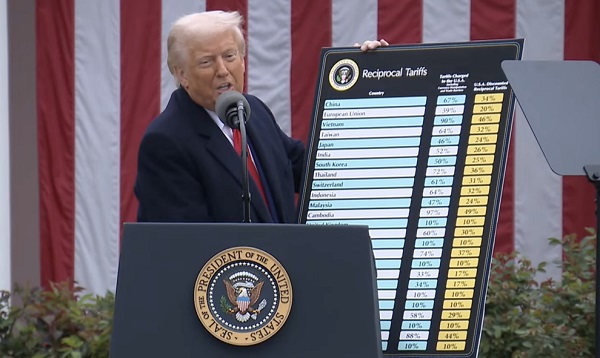Education
Annual Education Results released by Red Deer Catholic Regional Schools

From Red Deer Catholic Regional Schools
Board Meeting Highlights
Annual Education Results Report:
The Associate Superintendent of Curriculum presented the 2021-2022 Annual Education Results Report to the Board of Trustees. RDCRS recognizes that the strong results from the 2021/2022 school year are a result of our staff’s significant efforts. Our students’ school day begins with the friendly greeting of a bus
driver and continues late into the evening with our staff coaching practices and games, directing a play or musical, or leading youth ministry events. It is this collective teamwork for all our students that makes RDCRS an extraordinary place, and RDCRS has seen this in the feedback from our staff, students, and
parents. RDCRS would like to sincerely thank everyone for their tireless efforts on behalf of our students and their families.
The Board of Trustees approved the Annual Education Results Report for the 2021-2022 school year, as presented. To view the Annual Education Results Report, please click here.
Middle School Program Change Proposal:
The Associate Superintendent of Inclusive Learning presented the Program Change Proposal: Moving Foundations and Blended Programs from St. Francis of Assisi Middle School to St. Lorenzo Ruiz Middle School Report to the Board of Trustees. The proposal outlined a relocation of the Foundations and Blended programs from St. Francis of Assisi Middle School to St. Lorenzo Ruiz Middle School.
The purpose of the relocation is to maximize programming space which will result in optimal learning opportunities for RDCRS students. Another key factor in the relocation is the current high student enrollment at St. Francis of Assisi Middle School as a result of our grandfathering guidelines.
The Board of Trustees approved moving forward with the relocation of the Foundations and Blended Programming at St. Francis of Assisi Middle School to St. Lorenzo Ruiz Middle School, effective for the 2023-2024 school year.
Preparation to Open St. Lorenzo Ruiz Middle School Report:
The Superintendent shared with the Board of Trustees the Preparation to Open St. Lorenzo Ruiz Middle School Report and provided an update of the progress to date. As RDCRS continues to prepare for the Division’s new middle school, the Superintendent informed the Board of Trustees that a core team of
educators, transportation department representatives and senior leadership personnel have been assembled to start preparations for St. Lorenzo Ruiz. This team will be undergoing extensive work over the next six months as communication with RDCRS stakeholders is pivotal. The core team met on January 18 and will continue to meet regularly for ongoing discussion, collaboration and preparation.
The Superintendent also highlighted transportation and grandfathering guidelines that are currently in effect for the Division. To view the full Preparation to Open St. Lorenzo Ruiz Middle School Report, please click here.
The next Board Meeting will take place on Tuesday, February 28, 2023 at 5:30 p.m.
Education
Our Kids Are Struggling To Read. Phonics Is The Easy Fix

From the Frontier Centre for Public Policy
One Manitoba school division is proving phonics works
If students don’t learn how to read in school, not much else that happens there is going to matter.
This might be a harsh way of putting it, but it’s the truth. Being unable to read makes it nearly impossible to function in society. Reading is foundational to everything, even mathematics.
That’s why Canadians across the country should be paying attention to what’s happening in Manitoba’s Evergreen School Division. Located in the Interlake region, including communities like Gimli, Arborg and Winnipeg Beach, Evergreen has completely overhauled its approach to reading instruction—and the early results are promising.
Instead of continuing with costly and ineffective methods like Reading Recovery and balanced literacy, Evergreen has adopted a structured literacy approach, putting phonics back at the centre of reading instruction.
Direct and explicit phonics instruction teaches students how to sound out the letters in words. Rather than guessing words from pictures or context, children are taught to decode the language itself. It’s simple, evidence-based, and long overdue.
In just one year, Evergreen schools saw measurable gains. A research firm evaluating the program found that five per cent more kindergarten to Grade 6 students were reading at grade level than the previous year. For a single year of change, that’s a significant improvement.
This should not be surprising. The science behind phonics instruction has been clear for decades. In the 1960s, Dr. Jeanne Chall, director of the Harvard Reading Laboratory, conducted extensive research into reading methods and concluded that systematic phonics instruction produces the strongest results.
Today, this evidence-based method is often referred to as the “science of reading” because the evidence overwhelmingly supports its effectiveness. While debates continue in many areas of education, this one is largely settled. Students need to be explicitly taught how to read using phonics—and the earlier, the better.
Yet Evergreen stands nearly alone. Manitoba’s Department of Education does not mandate phonics in its public schools. In fact, it largely avoids taking a stance on the issue at all. This silence is a disservice to students—and it’s a missed opportunity for genuine reform.
At the recent Manitoba School Boards Association convention, Evergreen trustees succeeded in passing an emergency motion calling on the association to lobby education faculties to ensure that new teachers are trained in systematic phonics instruction. It’s a critical first step—and one that should be replicated in every province.
It’s a travesty that the most effective reading method isn’t even taught in many teacher education programs. If new teachers aren’t trained in phonics, they’ll struggle to teach their students how to read—and the cycle of failure will continue.
Imagine what could happen if every province implemented structured literacy from the start of Grade 1. Students would become strong readers earlier, be better equipped for all other subjects, and experience greater success throughout school. Early literacy is a foundation for lifelong learning.
Evergreen School Division deserves credit for following the evidence and prioritizing real results over educational trends. But it shouldn’t be alone in this.
If provinces across Canada want to raise literacy rates and give every child a fair shot at academic success, they need to follow Evergreen’s lead—and they need to do it now.
All students deserve to learn how to read.
Michael Zwaagstra is a public high school teacher and a senior fellow at the Frontier Centre for Public Policy.
Alberta
Province pumping $100 million into Collegiates and Dual-Credit hands-on learning programs

Alberta’s government is helping students discover their skills and interests today, to help them find careers for tomorrow.
If passed, Budget 2025 will provide more than $100 million over three years for school boards to grow career education programs, including funding for more collegiate and dual-credit programs across Alberta.
“We are working to set students up for success by strengthening job-focused education. This money is helping schools partner with businesses, universities and colleges to create programs that will help students hit the ground running after they graduate.”
Career education helps students gain credits towards graduation while earning hands-on experience in fields like the trades, computer programming, health care, agriculture, culinary arts and more. These career education programs support a strong economy by helping students learn the skills they need to get in-demand jobs.
Collegiate schools
Collegiate schools work with businesses, universities and colleges to offer classes that give students pathways to education and careers in the job of their choice. There are 12 collegiate schools in Alberta, offering many different types of programming for grades 7-12, including aviation, graphic design, trades and more.
If passed, Budget 2025 provides more than $21 million to school boards to help fund special classrooms like carpentry workshops, film and media rooms, science laboratories, heavy equipment simulators and aircraft hangars. Another $6 million is being invested to support the start-up costs for new collegiate schools.
Dual-credit programs
Budget 2025, if passed, also provides $4.6 million in 2025/26 to start new or improve existing dual-credit programs. In partnership with universities and colleges, dual-credit programs give students a head start on rewarding careers by allowing them to earn high-school and post-secondary credits at the same time. Of the $4.6 million, $550,000 is being provided by Alberta Seniors, Community and Social Services for new and improved dual-credit health care aide programs.
“Health care aides play a critical role in ensuring Albertans receive the continuing care services they need to maintain their health, independence and quality of life. Our investments into career pathways for health care aides will provide opportunities for young Albertans to develop the skills they need to build a rewarding career in Alberta’s continuing care workforce.”
Another $1.4 million is being invested to support students participating in off-campus career education programs through CAREERS. This non-profit connects students to jobs in high-demand fields, such as the trades, technology, health, forestry and agriculture.
“Investments in collegiate and dual-credit programming are significant for Calgary Catholic as they further strengthen our collegiate and dual-credit programming. This programming will open opportunities for our students and help them to realize their full potential.”
“Before Fusion Collegiate, I felt lost and wasn’t really sure what to do after high school. Thanks to its career-focused learning and the opportunities through Fusion and The Educational Partnership Foundation, I’m now working as a first-year apprentice plumber with Mr. Rooter. The hands-on trades training, high school credits, safety certifications, and real-world skills I picked up completely changed my life. I’m excited about where my career is headed and really thankful for the support that helped me get here.”
Budget 2025 is meeting the challenge faced by Alberta communities with continued investments in education and health, lower taxes for families and a focus on the economy.
Quick facts
- If passed, Budget 2025 invests $102.4 million over three years to provide sustainable, predictable career education funding, and to increase access to career education for Alberta students.
- This includes $8.4 million over 2026-27 and 2027-28 to raise awareness among students and families of career education programs and pathways available to Alberta students.
- Career education in Alberta includes career and technology courses, Career and Life Management (CALM), dual-credit courses, collegiate schools, apprenticeships and off-campus education programming.
- Since 2013, more than 95,000 high school students participated in at least one dual–credit course.
- In spring 2025, Alberta Education will engage with education partners on best practices to bring more career education opportunities to students.
- Since 2022, education partners and almost 5,000 Albertans have provided their feedback on career education and workforce needs.
Related information
-

 2025 Federal Election2 days ago
2025 Federal Election2 days ago‘I’m Cautiously Optimistic’: Doug Ford Strongly Recommends Canada ‘Not To Retaliate’ Against Trump’s Tariffs
-

 Alberta2 days ago
Alberta2 days agoBig win for Alberta and Canada: Statement from Premier Smith
-

 Catherine Herridge2 days ago
Catherine Herridge2 days agoFBI imposed Hunter Biden laptop ‘gag order’ after employee accidentally confirmed authenticity: report
-

 Business2 days ago
Business2 days agoCanada may escape the worst as Trump declares America’s economic independence with Liberation Day tariffs
-

 Canadian Energy Centre1 day ago
Canadian Energy Centre1 day agoSaskatchewan Indigenous leaders urging need for access to natural gas
-

 Business1 day ago
Business1 day agoB.C. Credit Downgrade Signals Deepening Fiscal Trouble
-

 2025 Federal Election1 day ago
2025 Federal Election1 day agoHighly touted policies the Liberal government didn’t actually implement
-

 Business2 days ago
Business2 days agoTrump orders 10% baseline tariff on imports, closes de minimis loophole





